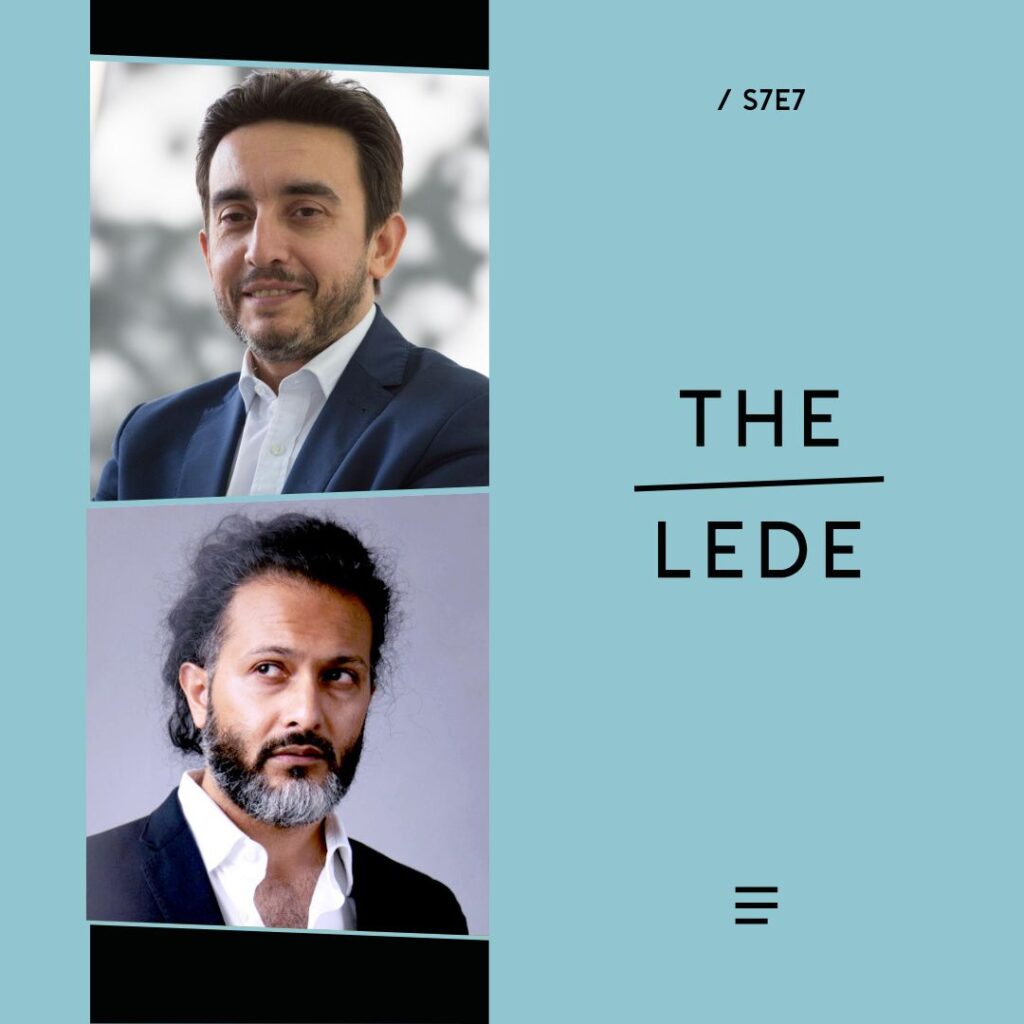Hosted by Faisal Al Yafai
Featuring Bruno Maçães
Produced by Finbar Anderson
Listen to and follow The Lede
Apple Podcasts | Spotify | Podbean
The global geopolitical landscape is changing, but not because of armies squaring up against each other on the battlefield, or even superpowers trading threats backed up by nuclear weapons.
Bruno Maçães is a former politician and New Statesman columnist. He is also the author of “World Builders: Technology and the New Geopolitics.” On this week’s episode of The Lede, he tells New Lines’ Faisal Al Yafai how the battle lines are being drawn in a virtual world, and how the builders of the strongest AI language models will be the true power brokers of the future.
“They are in the driving seat. They are creating the conditions, they are writing the codes, and they are developing the rules, and then everybody else is interacting with that world that they have created.”

“Power has become the power to set the fundamental conditions, the landscape within which other actors operate,” Maçães says.
Those wielding that power, Maçães explains, will be those creating the Large Language Models (LLMs) like OpenAI’s ChatGPT, or the upstart new Chinese model DeepSeek. These will become increasingly important building blocks of technology, and ever more closely integrated into the way we live our daily lives.
The difficulty is, Maçaes notes, that these models are not, and will never be, neutral. “There are no neutral models,” says Maçães. “It’s a mind that has been created by other minds, and so you get the biases of those other minds, but you also get the biases that are deliberately introduced into the model for all kinds of political, economic and social reasons.”
“These models, which are going to become the infrastructure of our societies, will also have geopolitical views,” says Maçães. “They will come up in all kinds of subtle ways. They will come up in the ways that factories are organized because factories are going to be organized on the basis of these models. And so in rather unpredictable, subtle, profound systemic structural ways, these views are going to organize socioeconomic processes in the future. I’m not talking about 2025, but I’m certainly talking about 2035.”
These developments in technology will have profound geopolitical implications, says Maçães. “It’s going to be the most powerful states that are coming up with these models and shaping them in certain directions. … It clearly creates a world where there are no neutral spaces between the great powers and where the balance between great powers is not given by the natural, physical world.”
One of the most profound geopolitical implications could be a shift in the technological center of gravity from the West toward China, says Maçães. “It’s not a generational change, it’s not a secular change. It fundamentally changes how the world has been for 500 or 600 years.”


